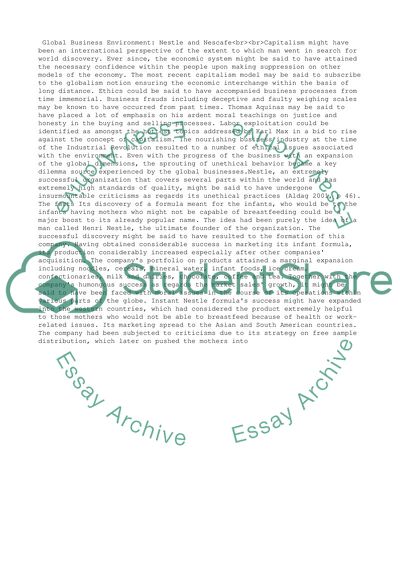Cite this document
(“Global Business Environment: Nestle and Nescafe Essay”, n.d.)
Global Business Environment: Nestle and Nescafe Essay. Retrieved from https://studentshare.org/business/1449977-global-business-environment-nestle-and-nescafe
Global Business Environment: Nestle and Nescafe Essay. Retrieved from https://studentshare.org/business/1449977-global-business-environment-nestle-and-nescafe
(Global Business Environment: Nestle and Nescafe Essay)
Global Business Environment: Nestle and Nescafe Essay. https://studentshare.org/business/1449977-global-business-environment-nestle-and-nescafe.
Global Business Environment: Nestle and Nescafe Essay. https://studentshare.org/business/1449977-global-business-environment-nestle-and-nescafe.
“Global Business Environment: Nestle and Nescafe Essay”, n.d. https://studentshare.org/business/1449977-global-business-environment-nestle-and-nescafe.


